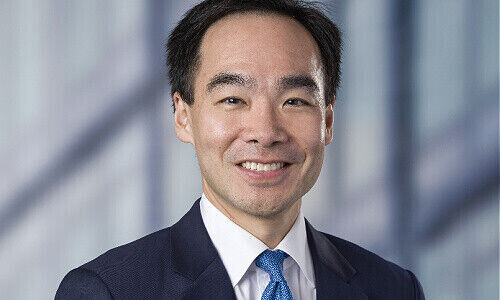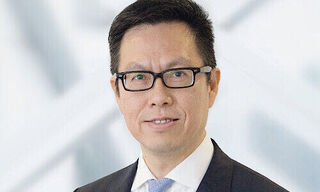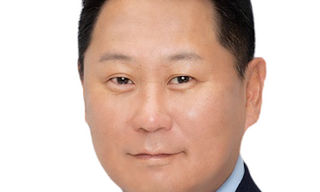In the past, some firms chose to list in the U.S. However as a result of geopolitical tension that is now a less attractive route – so actually we have seen more business flowing to the Hong Kong Stock Exchange over the past couple of years, Howard Wang from J.P. Morgan Asset Management says in an interview with finews.com.
Howard Wang, how can private investors best invest in the Chinese stock market?
The first question is whether to focus only on A-shares listed in Shanghai and Shenzhen; or in offshore stocks too – e.g. those listed in Hong Kong. The A-share market is liquid, deep and inefficiently priced – all factors which offer the opportunity to disciplined investors.
That said, names such as China’s world-leading internet giants (e.g. Alibaba and Tencent) are generally listed in the offshore market. Some investors may already have exposure to those as part of regional Asian portfolios or Global Emerging Markets portfolios – in which case it may make the most sense at the margin to allocate additional capital only to A-shares – while others will not, and so may want to take an onshore and offshore approach.
«Hong Kong certainly doesn’t have a monopoly on high-quality companies»
In either case, the key is to ensure that your decisions are driven by analysis rather than by emotion. Investors have to be very selective, with a laser focus on the fundamentals. It is vital to be adequately diversified. We always advocate taking a longer-term approach to investing. Some people are able to do this themselves, others prefer to invest via professional managers such as J.P. Morgan – who have the advantage of extensive, dedicated resources which are well beyond what is possible for any individual.
Is it better, cheaper and safer for investors to invest only in Hong Kong?
While it can be easier for overseas investors to invest via Hong Kong than in the onshore market, as discussed elsewhere here there are ways of investing onshore too – e.g. via a mutual fund.
Our view is that the place to start is with the quality of the investable companies, rather than via the market of listing. Hong Kong certainly doesn’t have a monopoly on high-quality companies, and not every stock in HK is worth investing in.
«When we think about stocks we are agnostic to the market of listing»
As a result, when we think about stocks we are agnostic to the market of listing. We believe that the safest and most financially rewarding approach is to find the best companies, as we can invest in them wherever they happen to be listed – in the same way, that investors in the U.S. focus on business models rather than whether a stock happens to be listed on Nasdaq or on NYSE.
Does the Hong Kong stock exchange still have a future in the long term, or is business increasingly shifting to Shenzhen?
Given the size of the opportunity set, and some of the ongoing restrictions for foreign investors investing directly in China, we certainly think that the Hong Kong, Shenzhen and Shanghai stock exchanges all have a future.
«We are able to find plenty of names that we think offer double-digit compounded annual returns»
Some Chinese companies will continue to want to access foreign capital, by listing outside the Mainland. In the past, some chose to list in the US. However as a result of geopolitical tension that is now a less attractive route – so actually we have seen more business flowing to the Hong Kong Stock Exchange over the past couple of years. HKSE has been boosted too by the Stock Connect program, which enables capital to flow over the border for investment in particular stocks. We do not see this reversing any time soon.
What price potential do you think the Chinese stock market has in this year?
In our view, the key is not to try to forecast market-level returns over the short term, but rather to find individual stocks which look attractive on a multi-year view. Our in-house research team covers around 600 stocks in the Greater China region in great depth, including around 280 A-shares, and continually adds to that list. We are able to find plenty of names that we think offer double-digit compounded annual returns over the longer run.
Howard Wang is a co-Portfolio Manager for China and China A-shares funds in the Emerging Markets and Asia Pacific (EMAP) Equities team at J.P. Morgan Asset Management. Based in Hong Kong, he leads the Greater China-dedicated investment teams in Hong Kong, Shanghai and Taipei. He joined the firm in 2005 after eight years at Goldman Sachs. He began his career with Lazard Frères in 1995. He obtained a B.A. summa cum laude in economics from Yale University.



























